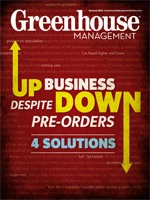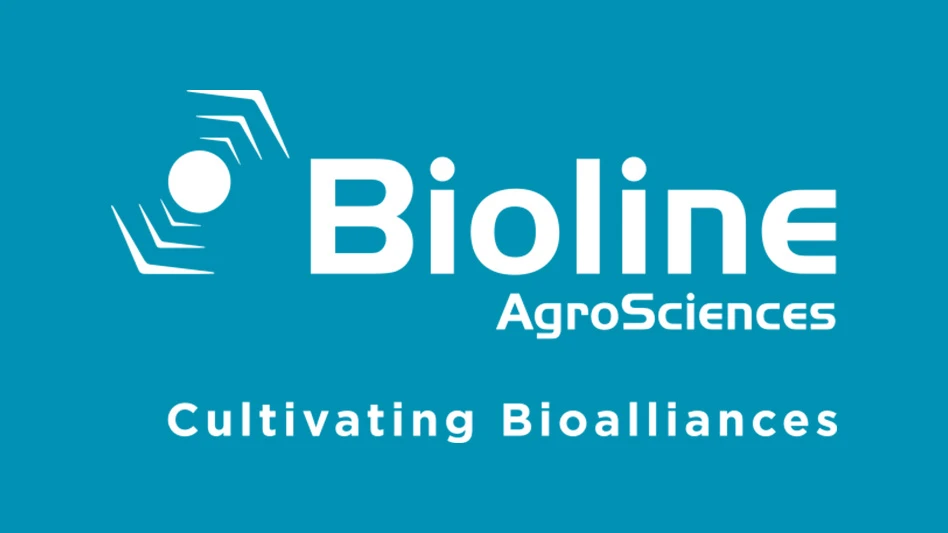
It started as a simple goal just a few years ago: Rocket Farms wanted to reach 1,000 Facebook likes. Marc Clark, executive vice president, remembers that it seemed lofty and maybe even impossible.
But Rocket Farms got there. Then the company set a new goal — and got there, too. Then it decided to try to reach 5,000, and in November, the grower even surpassed that mark, becoming the first company brand in the industry to do so.
The company is headquartered in Salinas, Calif., and has greenhouses in Gustine, Salinas, Santa Maria and Watsonville, Calif. It specializes in novelty orchids, poinsettias, organic and conventional herbs and vegetable plants, and a variety of potted flowering ornamentals. And now it's on a mission to reach 10,000 likes.
"It's always important to have a goal and have something to shoot for," Clark says. "Why not aim a little bit higher? If we don't get there, that's fine, but we'll still get farther than if we aim lower. I remember when it was 1,000 — it was like impossible and … now we're at 5,000. I didn't even think we'd get to 1,000, so why not 10,000? There are companies that have 10 times that, so what the heck. It gives us something to shoot for. It's a fun way of making a contest out of it for us."
Greenhouse Management spoke with Clark about how to grow your Facebook following and why it's important for business.
 How did you initially start your Facebook page?
How did you initially start your Facebook page?
It's probably been three or four years. We recognized social media was really important, so we started years ago to engage that audience. We try to engage our customers or consumers on a number of different levels. We ran contests, recipes, photos, that kind of thing.
We slowly built that. We started out with no fans, obviously, and we started engaging our audience and what we found is that people who like orchids are fanatical about that, and not only the orchids, but organic things and herbs and tomatoes. It was a platform for everybody to talk about that. It was really surprising how passionate people are about that.
We started it off, and we really had no expectations and we were surprised at how well it went and how rapidly people liked us.
How do you engage your audience and get people to like you?
We actually have a person who works for us who looks at Facebook and responds to it every day. It's really important you get involved in that. You have to have a voice for your page, and it needs to be consistent.
What we're doing isn't exactly gardening per say. It's more like home décor. Gardening is completely different. For gardening, maybe you have to have a certain level of expertise to speak about it. For us, people didn't know anything aside from 'Oh my god, this is so beautiful,' and they wanted to talk about it.
 Our business has a certain cache about it. People love what we do, all of us as growers. People love them — they don't like them. They love what we do. If you walk into anywhere with an orchid in your arm or some beautiful potted plant, people gasp and they'll talk to you about it for hours. It's not as though we're making cups or chairs or soil and things like that that aren't very sexy.
Our business has a certain cache about it. People love what we do, all of us as growers. People love them — they don't like them. They love what we do. If you walk into anywhere with an orchid in your arm or some beautiful potted plant, people gasp and they'll talk to you about it for hours. It's not as though we're making cups or chairs or soil and things like that that aren't very sexy.
It's fashion, décor, glamour, romance - but you don't need them. You don't need an orchid. You're not going to die if you don't get your basil or your tomato. People are buying these things because they're improving their lives somehow. They want to talk about that. You have to get to that level where you connect there.
It's not that hard to engage them. They want to talk about it. We just gave people a place for that.
It took you a few years to grow your following, so how do you have the patience to stick with it and not give up on it after just a few months?
That's why it's important. It's a priority. You can't just say, 'I read this article, so we need to have a Facebook page — go make a Facebook page, Bob. Put something about the company in there.' If you do that, it's not going to be very engaging. People will see through the BS pretty quickly. Someone in the company — preferably the owner or somebody in the upper management — has to be engaged in it and has to care. That's how you stay involved with it. It's your project and it's your company. It's a voice for you, too, and you get to talk about things you're interested in.
If you just relegate it to the kid in the office to do, it's not going to work that good. You've got to want to do it. If you don't want to do it, you shouldn't because it won't be that good. If you don't want to do it, or you just think you should because there's a lot of people talking about it, I wouldn't do it. Just pass until it's something you're really excited about doing. Otherwise it won't work that good.
 Is that why you hired someone part-time to handle your account?
Is that why you hired someone part-time to handle your account?
Yeah. We felt it was important we do it right and it wasn't an ad hoc thing we did now and then. We wanted to make sure that it was done as a priority.
Facebook pages are always the last thing. You're going to do everything and then that, and you never quite get to it. Unless you have somebody who's dedicated, it's hard to put it first and foremost in your business. There's always something more important.
You have to connect with your intended audience in a way that's real. You can't have a fake persona. I think whatever it is you do, good or bad, it should be you, it should be your voice and it should be consistent. You have to update your Facebook page.
The other companies I know, like Rick at Riverview Flower Farmin Florida, he's very actively involved in that. He posts pictures all the time and really uses that for his business. It's him and it has this voice and that carries through. People like that. They want to connect with your business and they want to know who you are. If you're bouncing all over the place and, you've got different people doing things and are inconsistent, you're not sending a clear message that people are interested, and they'll just walk away from it. There are so many other things going on, they won't spend any time there.
If the senior management doesn't have time to devote to it, what should they look for in hiring or assigning someone to do it?
You should have somebody who understands your business more than anything. I don't mean the business in general, plants and that sort of thing, although that's important, but someone who understands what your business is all about and the ethics and persona. It's good to hire somebody from inside the company, if you can, rather than outside. Things like plant care and that sort of thing, you can always get that information from the growers. You don't have to be an agronomist or have a Ph.D. in plant science to do a Facebook page. You just have to know what your audience wants. It gives you a window as to who's buying your products. That's important. We really like our customers and it's great to be able to see the end user — not just the grocery store channel, but to actually see who's buying your plants. It's like going to the farmer's market — it's a one-on-one relationship with your actual customer.
How do you justify putting financial resources toward it with no measurable financial outcome available?
I can't and I wouldn't. If you were just strictly [running by the numbers] you probably shouldn't because there's no reason to. This is larger than dollars and cents. This is whether you're a leader in your industry, whether or not you're a mover and shaker. Are you out in front of everybody or following behind? What do you want people to know about your business? If there's not much, don't do it. If you're going to devote financial resources to it, then you'll go, 'OK, I see we haven't had a lot of new customers or I don't see that we've been able to raise our price,' you're going to be disappointed with it and you'll give up on it. It's not like that. It's a long process, it's not a single event.
It's just part of all the things we do. We have a social media page. We have a website — you have to have a website, right?
People have to be able to come into your business and the website is really connected to the hip with your social media. They're how the world comes and looks at you. More and more that's through social media and through your website. Unless you're so huge and you're Coca-Cola and can do commercials, which none of us can, that's how people get to know you. If you don't want that, it's better not to spend the money because you won't get any monetary return on it. It's just part of running a successful company these days. You need to do that or you're just missing out on a whole lot of feedback and interaction with consumers.
For more: Rocket Farms Inc., (877) 237-7575 or www.rocketfarms.com

Explore the January 2012 Issue
Check out more from this issue and find your next story to read.
Latest from Greenhouse Management
- 2025 Proven Winners Horticulture Scholarship applications now open
- How to improve inventory and shipping management in the greenhouse
- Leading Women of Horticulture: Anna Ball, Ball Hort, and Terri McEnaney, Bailey Nurseries
- GM CEA HERB Part 2: A guide to increasing the sowing density of culinary herbs
- GM CEA HERB Part 1: Best practices for producing culinary herbs in controlled environments
- USDA fires experts on invasive pests, including Asian citrus psyllid, chilli thrips
- CEA Alliance celebrates bipartisan introduction of Supporting Innovation in Agriculture Act
- Dümmen Orange North America celebrating 25th anniversary in 2025






